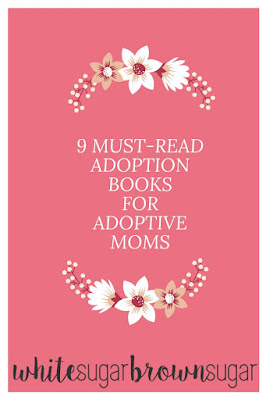The year was 2009. I had
won a giveaway of Russell D. Moore's book Adopted for Life: The Priority of Adoption for Christian Familiesand Churches.
I devoured it in a matter of days, just as I do any newly released adoption book.
And it made me squirm.
I'm a person of faith. I became a Christian at age 9. I've grown up in church. (We're talking hymnals, communion, John 3:16, revival, VBS, NKJV Bible church. Anyone else?)
At age 27, I became a mom by adoption. And then, just as it is now, I heard the same things over and over again. That God "called" people to adoption. That orphans needed us, NOW! That we were to get saved and then adopt kids and get them saved, too.
And none of it sat well with me. And it still doesn't.
"Christian" doesn't mean ethical.
An agency that has Christian in its name or description may be what you're aiming toward, because you believe that "Christian" carries with certain responsibilities and promises. But let me be very clear: Christianity is a spectrum, and some adoption professionals use their "Christian" status to do unethical things. "Christian" isn't a safeguard in adoption, though it certainly should be. We have personally worked with both Christian and non-religious adoption professionals, and above all what's most important is the professional commitment to ethics.
The "widows and orphans" Bible verse is not about today's adoption industry.
I see it ALL the time. Hopeful parents and those who have recently brought a child home, or hope to do so, boast of James 1:27. (NIV: "Religion that God our Father accepts as pure and faultless is this: to look after orphans and widows in their distress and to keep oneself from being polluted by the world.") They use the verse to promote adoption as God's will.
Many adoptees are not orphans. This verse is not a command to swoop in and "save" children, especially not those who don't need "saving."
Notice the TWO parts of the verse? Widows AND orphans. So often, I see adoptive parents shaving the verse down to fit their personal purpose: to adopt a child.
Which leads us to Ephisians 1:5 (another famous adoption Bible verse). (NIV: "he predestined us for adoption to sonship through Jesus Christ, in accordance with his pleasure and will.") Jesus Christ is the holiest of holy. He "adopted" His sons and daughters through his redemptive, relentless, radical love.
But we, as adoptive parents, aren't saviors of our children. We just are not. And if you believe that you are the savior/superhero, it means you're putting yourself on a pedestal, leading your adoptee needing to be grateful for your "sacrifice." And that's just jacked. That's complicated. That's not OK.
God is love, and love conquers all!
Jesus' love can absolutely conquer all. I wholeheartedly believe that.
But human love? Human love is flawed and wrought with issues. And our human love cannot "conquer" our children's trauma, for example. Or the needs of our children of color.
But Jesus and Moses were adopted, so God must love adoption!
There are very few similarities between Jesus and Moses being "adopted" and today's adoptions.
Today's adoption industry is full of unethical adoption professionals capitalizing on baby-hungry hopeful parents. There are so many intricacies: money, coercion, information, propaganda.
I don't want you to believe you can't adopt ethically. You can. We did, four times. Which leads us to this...
Where is God in adoption today?
God is in the step-by-step choices you make along your adoption journey, IF YOU ALLOW HIM TO BE THERE. If you welcome Him into that space and honor Him in your choices, thereby also honoring the biological/expectant parents and most of all, honoring your child, the adoptee.
You can't tell your adoptee that "Jesus loves adoption so you should love your adoption too," instead of letting your child, the adoptee, feel as he/she feels and work through his/her emotional journey.
Instead, God can assist all members of the triad through the ups and downs that inevitably come with adoption. The complexities, the questions, the fears, the joys. God can be in the midst of those.
Any type of adoption, whether it be spiritual or legal, does share commonalities: love and devotion and hope. But in my opinion, we shouldn't equate Jesus' death and resurrection, and His offer of salvation, to what we are doing or have done to build our family. One is holy, one is selfish. One is perfect, one is flawed.
There are stark differences. And if we fail to acknowledge those differences, I fear that we have lost the depth of Christ's sacrifice for us and have put way too high of expectations on our children, the adoptees, the ones who matter most in the adoption.
What do you think? Where is God in
adoption?























